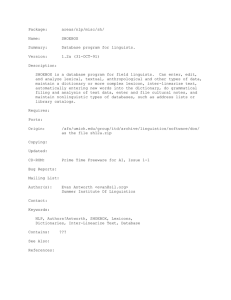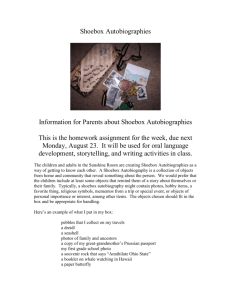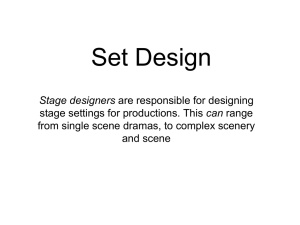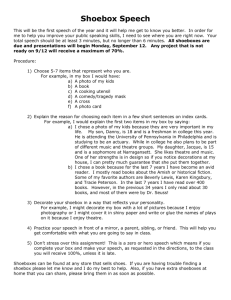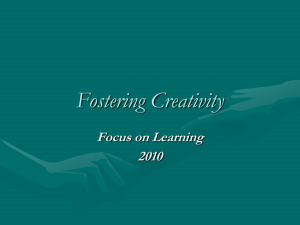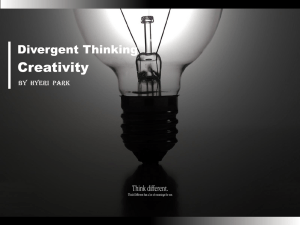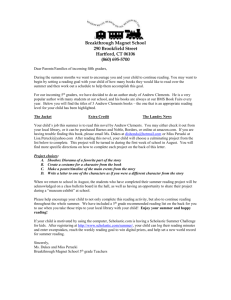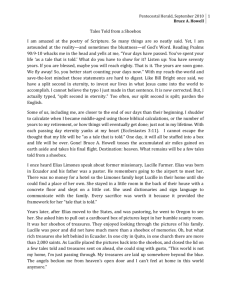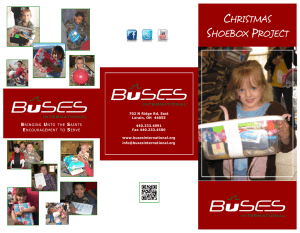Creativity & Innovation
advertisement
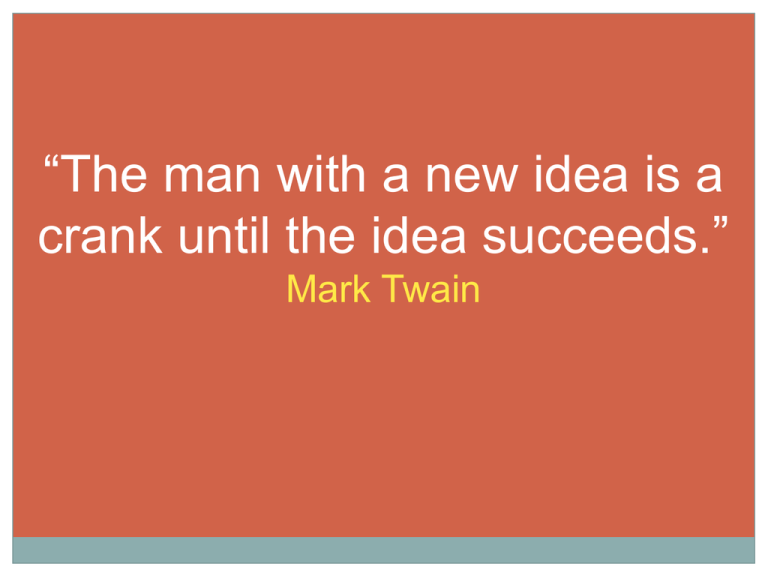
“The man with a new idea is a crank until the idea succeeds.” Mark Twain Ideas & Innovations D AV E JA R M A N E N T E R P R I S E S K I L L S & E D U C AT I O N M A N A G E R Creativity exercises #1 & #2 Individual exercise 1 minute to identify as many different ways of using the object as you can Theory of Categories Group exercise 2 minutes to identify as many different ways of using the object as you can Theory of Variety The barriers to creativity Habit – tried & trusted Lack of stimulation The ‘intelligence trap’ Not asking the right question: “what is a shoebox for?” “what could you use a shoebox for?” “how many uses can you think of for a shoebox?” “can you think of 100 uses for a shoebox?” The fear of being wrong “It is better to have enough ideas for some of them to be wrong, than to always be right by having no ideas at all.” Edward De Bono Different approaches Convergent thinking Good for evaluating ideas Rubbish for generating ideas Focusing tool Divergent thinking Good for generating ideas Rubbish for evaluating ideas Scanning tool Principles of creativity Suspend judgement Only converge after diverging! Quantity not Quality Feed your brain something different – variety Have the confidence to make ‘mistakes’ ‘As if’ – free your mind If I was Richard Branson, Steve Jobs, the Queen... If we had £1,000,000... If we had double/half the resources If it had to be.... Fun? Tools for Divergent thinking Re-expression: With alternative words Using different senses i.e. Illustration or Role-play From another’s perspective ‘as if ...’ Related worlds Has anyone tackled a similar problem in another company/industry? Revolution Identify ‘The Rules’ and then identify ways of breaking them Random links Innovation Innovation is applied creativity Innovation is about improving existing activities with new ideas: New products New processes New market positions New business models Improving how? More effective, Faster, Cheaper, Less Wasteful, Prettier... Innovations are: Evolutionary – incremental developments Or Revolutionary – really alternative developments The drivers of innovation Need The identification of problems or hurdles encourages people to solve them Connections – often Possibility Another breakthrough provides a ‘stepping-stone’ (the ‘adjacent possible’) Someone asks ‘what if?’ between disparate ideas Time and space to explore A willingness and ability to move beyond ‘comfortable’ frames of reference Networks “Engineered Serendipity” “Chance favours the connected mind.” Steven Johnson (2010) Innovation Exercise In groups Think about one product or service you’ve used today: Can you create a better product/service? Can you develop a better process to access the product/service? Can you sell that product/service to a different market? Can you find a different way to make money from the product/service? Tactics for a more creative life… Do the things you don’t normally do Different activities in… …Different places with… …Different people Take an alternative route Write your ideas down Share even the silly ideas with others Have more holidays (or at least days away) ‘As if’ Put a different sock on first in the morning… Beermat Idea Challenge Brilliant idea? In 140 characters? Submit and vote online Or grab a Beermat and stick in the box in Senate House The best ideas win prizes! Bristol.beermatchallenge.co.uk Good books ‘Sticky Wisdom’ - ?Whatif! ‘The Art of Innovation’ – Tom Kelley ‘Edward De Bono’s Thinking Course’ – Edward De Bono “Problems cannot be solved by the same level of thinking that created them.” Albert Einstein


